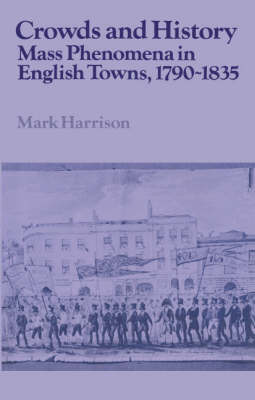In the late eighteenth and early nineteenth centuries, urbanisation 'revolutionised' English society as much as industrialisation. Central to this urbanising process, and the civic culture it inspired, was the bringing together of people in large numbers - to celebrate, commemorate, vilify or validate. Contemporary observers found the power and potential of urban crowds both awesome and alarming. They witnessed the capacity of the masses to confer honour and prestige upon a proud city elite or, by turning hostile, to bring civic ruin. Yet this ambivalent relationship between the individual and the crowd, which resonates through not only the nineteenth century but all human history, has remained generally ignored by historians. They have regarded crowds almost exclusively as a riotous, disruptive and protesting force. This book, which is the first systematic historical study of mass phenomena, challenges such preconceptions and re-defines the place of the crowd in history.
- ISBN13 9780521302104
- Publish Date 24 November 1988
- Publish Status Inactive
- Out of Print 1 March 2005
- Publish Country GB
- Imprint Cambridge University Press
- Format Hardcover
- Pages 382
- Language English
